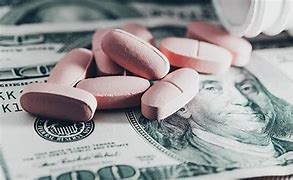Barrons Highlights a Potential Big Change in Bio Investing - What Happens When $100B in Revenue Comes Up for Grabs?
- Jonathan Poyer
- Apr 8, 2024
- 2 min read
Updated: Apr 11, 2024

We have spoken about exclusivity rights and patents in the past as an important part of many of the largest pharmaceutical companies bottom lines. Some of these blockbuster drugs are creating billions of dollars of revenue for these major corporations each quarter and fund innovation, R&D, and acquisitions. That steady revenue stream also allows shareholders to collect generous dividends in addition to capital appreciation.
Barron's dives into Big Pharma and really takes on the end of exclusivity "cliff" that is forthcoming and its potential impact on investors. The sub-heading to the article is telling:
Pfizer’s patent expirations are great for humanity but terrible for investors. It’s a common story across the pharmaceutical industry.
Rather than focus on the stock prices of some of these major companies, something the article does an awesome job covering, let us take a look at the breadth and depth of patent expirations. From the article:
As Barron’s described in a 2022 cover story, drugmakers saw that the biotechs were getting away with setting extraordinarily high prices for their newer, more-complex medicines, while fetching higher multiples.
Biotech’s expensive medicines, generally for rarer conditions, were harder for generic drugmakers to duplicate than the pills Big Pharma had focused on.
Inspired, or perhaps envious, Big Pharma companies spun off their ancillary businesses and focused on more-complex drugs, hoping that less generic competition might allow them to charge high prices even after patents expired.
The strategy hasn’t played out as hoped. Biosimilars, as copycat versions of more-complex medicines are known, have gotten increasingly effective at lowering drug prices.
Meanwhile, the new Medicare price-negotiation regime, signed into law in 2022, is stepping in where biosimilars cannot, imposing its own revenue cliffs. The law won’t affect every drug, but it will shorten the time frame in which companies can charge whatever they want for drugs.
In the next 6 years, over $100B of drugs will see their patents expire. The impact of this change will cover lots of ground: Big Pharma, Patients, Hospitals/Doctors, R&D, Investing, Government, etc. Some of these Big Pharma companies not only manufacture drugs, but are major stays in investment portfolios around the globe. The article highlights the impact on the bottom line of some of the largest:
Merck - $30B set to go off-patent by 2030
Bristol Myers- $23B
Pfizer - $17B
Johnson & Johnson - Over $19B
Eli Lilly - Over $13B
One more thing to throw into the mix for investors to consider. Historically, the XBI and the 10-year yield have inverse correlation. You can see that in the chart below. However, at the start of this year (2024), we saw decoupling and the two moving in tandem at the same time as the index shot off amidst a wave of momentum trading.
Since mid-March, things have gotten back to "normal" a bit between the two.
But with most of the index's biggest successes driven by stories rather than data, perhaps health investing is about to see big, permanent changes across the board. Might be time to start preparing for these changes.






Comments